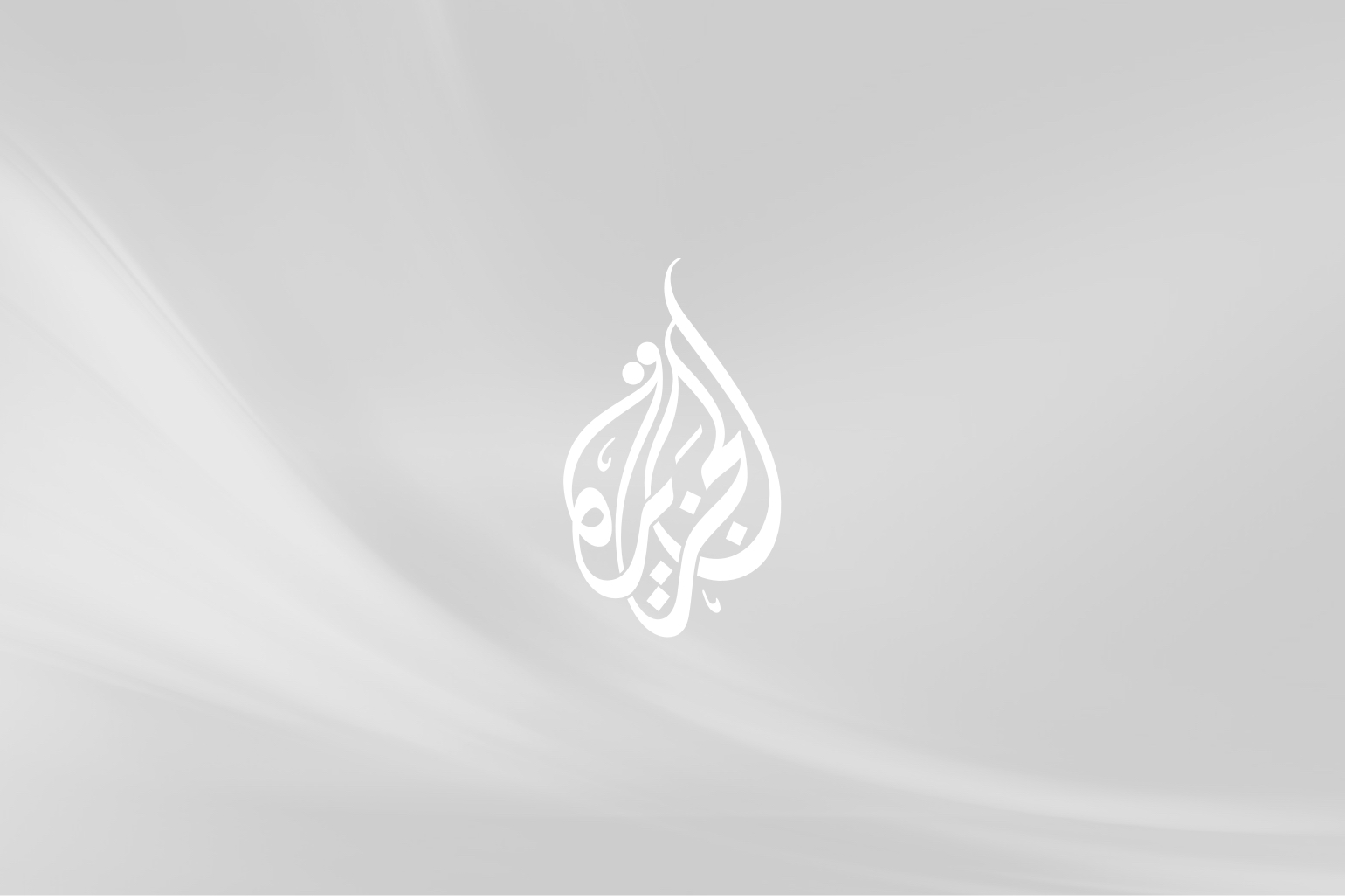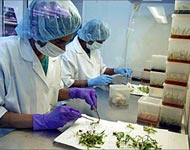Catching up on lost technology
Over a decade of United Nations sanctions and two US-led wars have dealt Iraq’s science, technology and education sectors a crippling blow from which it will do well to recover
As the world surged forward during the 1990s with technological, scientific and health advances, Iraq descended into a digital black hole.
Twelve years of United Nations-imposed sanctions and a series of crippling wars have left Iraq’s education and science sector a shell of its former self.
They have been seriously cut off from technological and intellectual advances,” said Dennis Halliday, a former UN humanitarian coordinator in Iraq who resigned in protest at the UN sanctions.
 |
|
Iraq has been prevented from keeping |
“On the physical level, to rebuild universities, research institutes and laboratories could take five to 10 years,” said Halliday.
Peter Lems of Iraq’s Middle East Peace Education agrees. “If you go back to 1990 that’s really when the computer revolution started so you have a generation that doesn’t know this technology and a generation of educators that doesn’t know how to teach it,” he said.
A five-member Congressional team which visited Iraq in 1999 to assess the impact of UN-imposed sanctions reported: “With no access to the Internet, the US and British prohibitions on access to medical, academic and other intellectual journals impose essentially total deprivation of global intellectual communication on Iraqis.”
Regardless of the human rights record of Saddam Hussein’s government, under the deposed Iraqi leader education and scientific research flourished. Before the 1991 Gulf War and UN sanctions, Iraq was a rapidly developing country with a stout middle class and modernised agriculture. According to the World Health Organisation, 93 percent of the population had access to health care.
“Baath party officials spent a great, great deal on education,” said Halliday. “They also enhanced and enriched universities,” he said, adding that students were encouraged to study abroad.
Once the embargo descended on the country, a “silent exodus” of Iraqis, particularly from the professional segment of society, began. A US Congressional visit in 1999 to Baghdad warned this brain drain was “having severe consequences on Iraq’s once-advanced scientific, technological and academic progress.”
“For years Iraqi scientists had contributed to the regional research conducted at Arab and international universities by way of reciprocal research, holding conferences and workshops,” said Dr Mazen Said, a physics lecturer at Baghdad University from 1980 until 2001.
“However, because of the sanctions imposed on Iraqi scientists, their contribution at the international level has been hampered,” said Said.
Before 1991, Iraq had one of the most educated societies in the Middle East with free mandatory schooling for men and women from primary through to advanced learning. Suddenly Iraqis found themselves in a situation where there was no books for schoolrooms and no up-to-date journals due to the “intellectual embargo.”
Schools were among the first to be hit and deteriorated rapidly.Textbooks from elementary school through university were almost 10 years old.
A UN Scientific, Educational, Scientific and Cultural Organisation (UNESCO) report prepared for the Security Council’s panel on humanitarian issues in Iraq noted that literacy rates by 1987 “had increased to 80 percent. This is attributed to the success of the massive literacy campaign conducted during the late 1970s and early 1980s…In 1995, the rate of literacy was estimated at 42 percent, a major shift in favour of illiteracy.”
“Iraqi education systems have always focused on science and were a great strength for schools,” said Lems. A link can be made to the amount of students who had travelled abroad to earn their graduate and doctorate degrees in science to the emphasis placed in their school systems, he said.
“Much of this emphasis was in order to create technocrats to manage the country’s great natural resources,” said Lems. Iraq sits on 112 billion barrels of oil, the second largest known reserves in the world.
“Iraq was a Mecca for students around the Arab world and many of those students lost those opportunities.”
 |
|
Will Iraq once again become a |
Palestinians and Tunisians, who had previously found support from Iraqi universities, found themselves cut off overnight. Campuses formerly teeming with students from all across the Arab world were a hub for cultivating inter-Arab dialogue and encouraged contact and cooperation between Middle East states, said Lems.
The UN also pointed to the problem of “deprofessionalisation,” which includes incomplete education and those with advanced degrees working outside their field.
Consequently this “raises the serious issue of lack of opportunity for Iraqis…participation in an international world which is increasingly leaving Iraq behind in terms of knowledge, technology and cooperation.”
A 1999 report by an AFSC-sponsored medical delegation discovered the embargo had halted computer technology, books and professional journals from entering Iraq.
“Prohibiting the transmission of scientific knowledge to another country is unconscionable,” said Dr Leila Richards, a public health consultant and leader of the AFSC delegation.
In order to rebuild the country’s shattered science and technology sectors Iraqi physicist Said believes the homeland’s scientists should be encouraged to return home.
“Most of my colleagues are more than eager to go back home to help reconstruct academic institutions, major industries and other social needs,” he said.
Said urged the universities and research institution to re-establish links with Iraq’s academic centres.
Washington’s US-led war left research institutes, some of which the United States claimed were facilities creating weapons of mass destruction (WMDs) in Iraq destroyed. Mosul University in northern Iraq was looted not long after US tanks had rolled into the heart of Baghdad in April demolishing an institute of higher learning.
The amount of destruction caused to scientific research facilities by US-led attacks in Washington’s war against Iraq is yet unknown but they have undoubtedly dealt another blow to the country’s scientific, technological and educational sector.
But perhaps all is not gloomy. Iraq may be in a good position to make a “technology leap.” Instead of laying land-line cables for telephones they may use the latest telecommunication technologies, explained Lems.
|
|
 |
|
Technology leap: Iraq is in a good |
The United States, which intends to lead an interim government in post-war Iraq, must make rehabilitating the country’s education system a priority and allocate sufficient funding for schools, said Lems.
If the situation was anything like Afghanistan where Washington promised to rehabilitate schools but instead focused on security, the prospects are not promising.
But the army of Iraqi scientists and professionals who left the country over the past 12 years, as well as those who remain, will play a key role in dragging their homeland into the 21st century.
“It’s a talent pool that needs to be homegrown…It’s going to be a challenge,” said Lems.